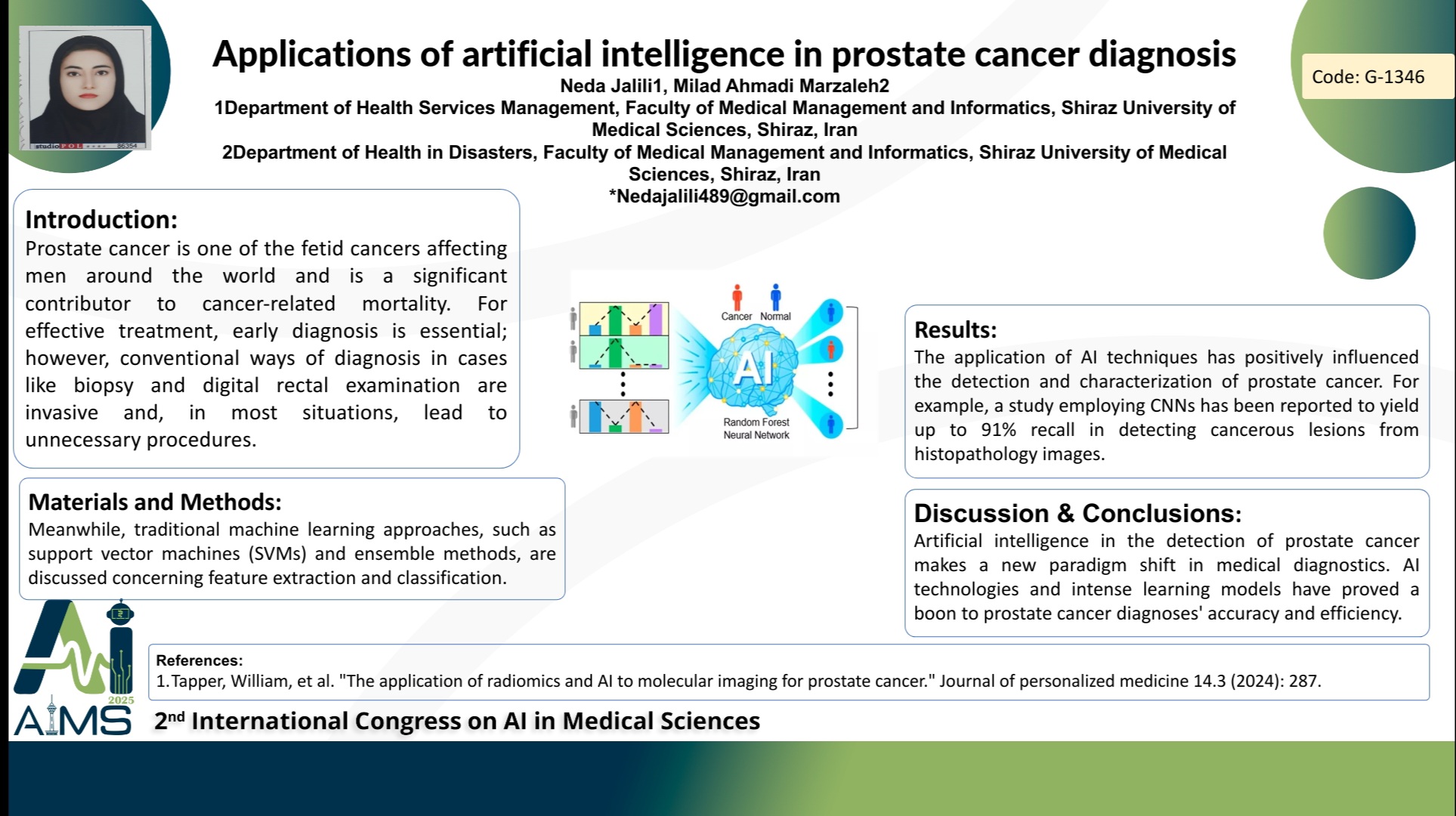Applications of artificial intelligence in prostate cancer diagnosis
Code: G-1346
Authors: Neda Jalili * ℗, Milad Ahmadi Marzaleh
Schedule: Not Scheduled!
Tag: Cancer Diagnosis & Treatment
Download: Download Poster
Abstract:
Abstract
Background: Prostate cancer is one of the fetid cancers affecting men around the world and is a significant contributor to cancer-related mortality. For effective treatment, early diagnosis is essential; however, conventional ways of diagnosis in cases like biopsy and digital rectal examination are invasive and, in most situations, lead to unnecessary procedures. The new incorporation of artificial intelligence and machine learning technologies offers potentially viable routes to improve diagnostic accuracy and aid patient management. The review describes AI's applications in interpreting molecular imaging and histopathological data for prostate cancer detection. Methods: Meanwhile, traditional machine learning approaches, such as support vector machines (SVMs) and ensemble methods, are discussed concerning feature extraction and classification. A systematic review was performed of databases (PubMed, Web of Science, and Scopus) of these studies published from December 2015 onward. The review highlights the need for large, high-quality annotated datasets to train these models adequately to address the problems posed by data scarcity and variability in clinical settings. Results: The application of AI techniques has positively influenced the detection and characterization of prostate cancer. For example, a study employing CNNs has been reported to yield up to 91% recall in detecting cancerous lesions from histopathology images. Also, AI-driven approaches are more accurate than conventional diagnostic methods, leading to fewer invasive procedures. Integrating radionics and assessing quantitative indexes obtained from medical images have also been mentioned as factors in improving accuracy and enabling treatment plans. AI applications are not limited to detection but extend into staging, treatment planning, and outcome prediction. Conclusion: Artificial intelligence in the detection of prostate cancer makes a new paradigm shift in medical diagnostics. AI technologies and intense learning models have proved a boon to prostate cancer diagnoses' accuracy and efficiency. However, some bottlenecks remain, like the generation of high-quality datasets and the seamless integration of AI systems with clinical workflows. Such problems should be cited in future studies and directed at improving model interpretability and, more importantly, ensuring research work geared toward clinical needs.
Keywords
Prostate Cancer, Artificial Intelligence, Machine Learning
